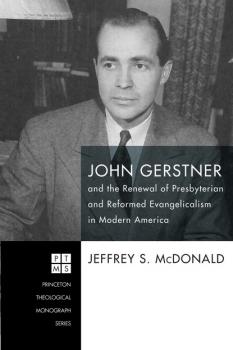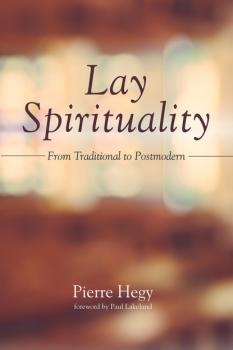Словари
Различные книги в жанре СловариMessianic Political Theology and Diaspora Ethics
Political theology as a normative discourse has been controversial not only for secular political philosophers who are especially suspicious of messianic claims but also for Jewish and Christian thinkers who differ widely on its meaning. These essays mount an argument for a «Messianic Political Theology» rooted in an interpretation of biblical (especially Pauline), Augustinian, and Radical Reformation readings of messianism as a thoroughly political and theological vision that gives rise to what the author calls «Diaspora Ethics.» In conversation also with Platonic, Jewish, and Continental thinkers, Kroeker argues for an exilic practice of political ethics in which the secular is built up theologically «from below» in the form of public service that flows from messianic political worship. Such a «weak messianic power» practiced by the messianic body inhabits an apocalyptic political economy in which the mystery of love and the mystery of evil are agonistically unveiled together in the power of the cross–not as an instrument of domination but in the form of the servant. This is not simply a matter of «pacifism» but of a messianic posture rooted in the renunciation of possessive desire that pertains to all aspects of everyday human life in the household (oikos), the academy, and the polis.
John Gerstner and the Renewal of Presbyterian and Reformed Evangelicalism in Modern America
John Gerstner (1914-96) was a significant leader in the renewal of Presbyterian and Reformed evangelicalism in America during the second half of the twentieth century. Gerstner's work as a church historian sought to shape evangelicalism, but also northern mainline Presbyterianism. In order to promote evangelical thought he wrote, taught, lectured, debated, and preached widely. In pursuing his aims he promoted the work of the great colonial theologian Jonathan Edwards. He also defended and endorsed biblical inerrancy and the Old Princeton theology. Gerstner was a sharp critic of theological modernism and what he considered its negative influence on the church. Part of Gerstner's fame was his active participation in mainline Presbyterianism and in so many of the smaller Presbyterian denominations and in the wider evangelical movement. His renewal efforts within the United Presbyterian Church USA (later PCUSA) were largely a failure, but they did contribute to the surprising resurgence of Presbyterian and Reformed evangelicalism. Evangelical marginalization in the mainline led Gerstner and other evangelicals to redirect their energy into new evangelical institutions, groups, and denominations. Gerstner's evangelical United Presbyterian Church of North America (UPCNA) background influenced the young scholar and the legacy of the UPCNA's heritage can be detected in the popular forms of the Presbyterian and Reformed evangelical movement that exist today. Moreover, he was significant for the revival of Reformed teaching beyond the bounds of Presbyterianism. This book establishes Gerstner's significance in American church history and provides a thorough analysis of the evangelical movement he sought to reinvigorate.
A History of the Episcopal Church Schism in South Carolina
In 2012, the Episcopal Diocese of South Carolina declared its independence from the Episcopal Church. It was the fifth of the 111 dioceses of the Church to do so since 2007. A History of the Episcopal Church Schism in South Carolina is the sweeping story of how one diocese moved from the mainstream of the Episcopal Church to separate from the church. It examines the underlying issues, the immediate causes, and the initiating events as well as the nature and results of the schism. The book traces the escalating conflict between the diocese and the church that led up to the schism. It also examines the legal war between the two post-schism dioceses, the majority in the independent Diocese of South Carolina and the minority in the Episcopal Church in South Carolina. This is the first scholarly history of a diocesan schism from the Episcopal Church. It is extensively researched from original and secondary sources and documented in over 2,000 notes citing nearly 900 works. This story stands as a cautionary tale of what happens in a major Christian denomination when majority and minority factions increasingly differentiate themselves and what impact that can have for both parties.
The Lord’s Work
The Catholic Apostolic Church combined liturgical worship, charismatic experience, ecumenical vision, and eschatological expectation. Philip Schaff commented that the claims made for its apostles, if true, commanded every Christian's attention. Historians and liturgists alike have been fascinated by the Church, but deterred from researching it because of the notorious difficulty of access to material. This account of the church's growth and decline draws on archival sources from several countries, many not hitherto used for research, and publications in German as well as English. Previous accounts in English have focused on the Church in the English-speaking world, but this book breaks fresh ground by covering the Church's development in every country where it was active. Surveying Catholic Apostolic history, polity, and ministry, it seeks to tell the story rather than using the Church as a test-case for a preconceived hypothesis. In so doing, it opens up a range of lines of inquiry for future researchers.
Lay Spirituality
Laypeople have a special mission in the church the way they have a special mission in society. In popular devotions the laity created a form of spirituality that lasted for over a millennium. Popular religiosity is alive in Latin America and in US ethnic subcultures. Vatican II redirected lay spirituality toward the liturgy as «the source and summit.» We will visit a parish where this ideal is put into practice, but in the wider church the role of the laity came to be restricted to ecclesial ministries. There are at least four new forms of spirituality in the making. I will first describe a vibrant evangelical church attended by many former Catholics. Next, we will visit a Guatemalan parish where over a thousand parishioners meet weekly in homes and witness to the gospel in their neighborhoods. The charismatic renewal is a major force of renewal in Latin America and among US Latinos. Finally, the spirituality of social justice is alive and well in south Chicago. In sum, this book will introduce you to six or seven major forms of spirituality alive today. Each of them defines a special place and mission for the laity in the church.
95 Theses for a New Reformation
Five hundred years ago Martin Luther wrote his Ninety-Five Theses, inaugurating the Protestant Reformation, and with it exemplified an unflinching devotion to return to the Word of God as the ultimate authority. Today, the church is also in desperate need for reformation–a new reformation to correct her shortcomings and meet the challenges of the day. Some might see everything as fine, some might see everything as hopeless, and others might simply dismiss the church as irrelevant, too impotent to reform herself, much less to strengthen the disintegrating family or address the downward-spiraling culture with a prophetic voice.
95 Theses for a New Reformation confronts the necessity for reformation today head-on. Over thirty of today's pastors, theologians, and church leaders analyze ninety-five current problems, search the Scriptures for solutions, and make sound biblical appropriations to implement into the life of the church, family, and culture. On this 500th anniversary of the Protestant Reformation, let us pray that the Lord will again revive his church for his own glory and for the purification of Christ's beloved bride, the church. And let us prepare ourselves to respond with urgency to God's call to action by reforming the church, family, and culture.
Contributors include: John Frame, John MacArthur, R. C. Sproul, Peter J. Leithart, and James White
The Reformation
The papers in this volume are less a commemoration of the Reformation than a discussion of its meaning in the era after 2017. What is celebrated in 2017 is not the Reformation as such, but the beginning of the Reformation. It was the dynamics of the «new» theology of Luther and Calvin that caused a radical change with global effects. Reformation is not just an historical event but an ongoing movement of renewal and change. The message of the Reformation constantly challenges us to think through positions, actions, attitudes, and programs. This book presents contributions from eleven experts from all over Europe, who deal with their various topics on the conviction that the essence of Luther's theology does not need to be adapted to make it relevant. The papers originated at the 2016 conference of the Fellowship of European Evangelical Theologians, which was held in Lutherstadt Wittenberg.
Scattered and Gathered
This volume takes its title from the first-century Christian catechism called the Didache: «Even as this broken bread was scattered over the hills . . . gathered together and became one, so let Your Church be gathered together from the ends of the earth.» For Christians today, these words remain relevant in an era of massive human movements (voluntary and coerced), hybrid identities, and wide-ranging cultural interactions. How do modern Christians live as both a «scattered» and «gathered» people? How do they live out the tension between ecclesial universality (catholicity) and particularity (distinctive ways of being church in a given culture and context)? Do Christians today constitute a «diaspora,» a people dispersed across borders and cultures that nonetheless maintains a sense of commonality and mission? Scattered and Gathered: Catholics in Diaspora explores these questions through the work of fourteen scholars in different fields and from different corners of the world. Whether through reflections on Zimbabweans in Britain, Levantines in North America, or the remote island people of Chiloe now living in other parts of Chile, they guide readers along the winding road of insights and challenges facing many of today's Christians.
Evangelical Calvinism
Continuing the discussion initiated in volume one, volume two of Evangelical Calvinism further articulates the central motifs of this mood within Reformed theology by examining themes having to do with dogmatics and devotion. After further clarifying the methodological and dogmatic aspects common to an Evangelical Calvinism, the heart of the present volume is an explication of the vicarious ministry of Christ as it is worked out in its diverse theological dimensions. The volume offers constructive accounts of various aspects of liturgy, sacraments, and doxology, showing the vitality and lived spirituality of this Christian vision of faith and practice. Both advocates and critics of Evangelical Calvinism now have an extended and thorough body of work with which to interact. As with volume 1, this volume promises to set the agenda for contemporary and constructive Reformed studies in a way that provides an alternative to neo-Calvinism and Westminster Calvinism alike.
The Beginning of Baptist Ecclesiology
The basic question, «Where did Baptists come from and why?» has two camps that offer differing explanations: (1) the English Separatist camp produced the ministries of foundational Baptists, John Smyth and Thomas Helwys, thus takes credit for Baptist origins, and (2) the Anabaptist movement is the alternative camp, understanding either a direct connection via lineage back to the infamous Swiss Brethren or an indirect connection via Anabaptist teachings. Anabaptist ecclesiology is very much akin, if not in some ways identical, to modern Baptist ecclesiology. In fact, the Baptist church, led by John Smyth and successively by Thomas Helwys, resembled both English Separatist and the Anabaptist ecclesiology with notable differences between both entities. When The Mystery of Iniquity is properly understood, as Helwys intended, the reader will grasp the logical reasons that the Baptist church in 1607 was akin to both the English Separatist and the Anabaptist and yet differed from both. In The Beginning of Baptist Ecclesiology, Marvin Jones give a fresh voice to Thomas Helwys's opinion that a Baptist church is a viable New Testament church, and provides further relevant material rationale for the conversation concerning Baptist origins.









